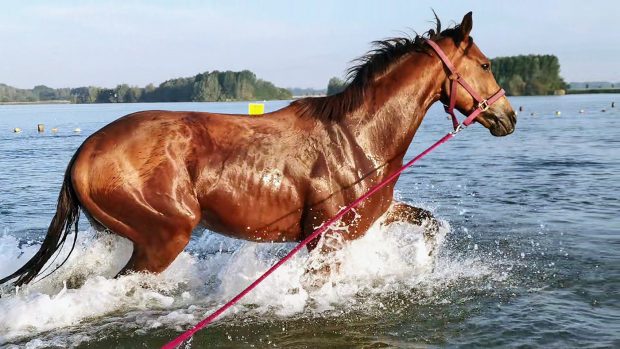Q: My equine physiotherapist said my horses, a five-year-old with scar tissue and a 15-year-old with stifle problems, would benefit from swimming.
However, at the British Horse Society-approved centre, my youngster panicked after one round, while the other horse became unattached from the handler’s pole, and became submerged. His injuries included a damaged tendon.
I filled in no pre-swim forms and received no apology. Is there a legal comeback?
JK, Surrey
A: There is no formal qualification or regulation for people operating swim therapy pools, according to Stuart Farr of Laytons Solicitors.
“However, as a consumer, you are entitled under statute to expect the hydrotherapy service provided is administered with reasonable care and skill,” he said.
“The service provider is also highly likely to owe you a similar duty of care under common law.
“If the service is not to the standard you are entitled to expect, you could claim back the cost, plus direct losses incurred as a consequence of equine damage, such as equine vet bills.”
Deborah Pett of Cinder Hill Equine Veterinary Clinic in Sussex told H&H swimming physiotherapy is extremely useful in the right cases, and there are many reputable centres.
“It is concerning you were not required to complete a veterinary history form, as well as the obvious implications if your horses were suffering from any relevant conditions.
“One would hope this was an isolated incident,” she said.
Gail Currie co-owns the Northern Equine Therapy Centre in North Yorkshire and recommends the following:
- Choose a well-established pool with experienced operators
- Pool owners should have liability insurance
- Ideally, a minimum of four staff should assist with the first swim
- At a professionally-run pool, staff will know what to do if the horse gets into difficulties
- We recommend that horses should wear tendon and overreach protective boots for swimming
- Head collars should fit and be in good condition
- Tell your equine insurance company about the therapy in advance
- Horses do not need a veterinary referral to swim; owners can arrange directly – but veterinary input may assist in the pool operator’s assessment of injury/rehabilitation cases
Further information
Laytons Solicitors, tel: 0161 834 2100 www.laytons.com
Cinder Hill Equine Veterinary Clinic www.cinderhillequinevets.co.uk
Northern Equine Therapy Centre www.northernequinetherapy.co.uk
This Q&A was first published in Horse & Hound magazine (23 July, ’09)



